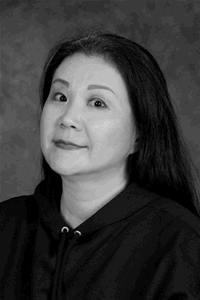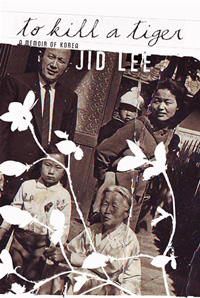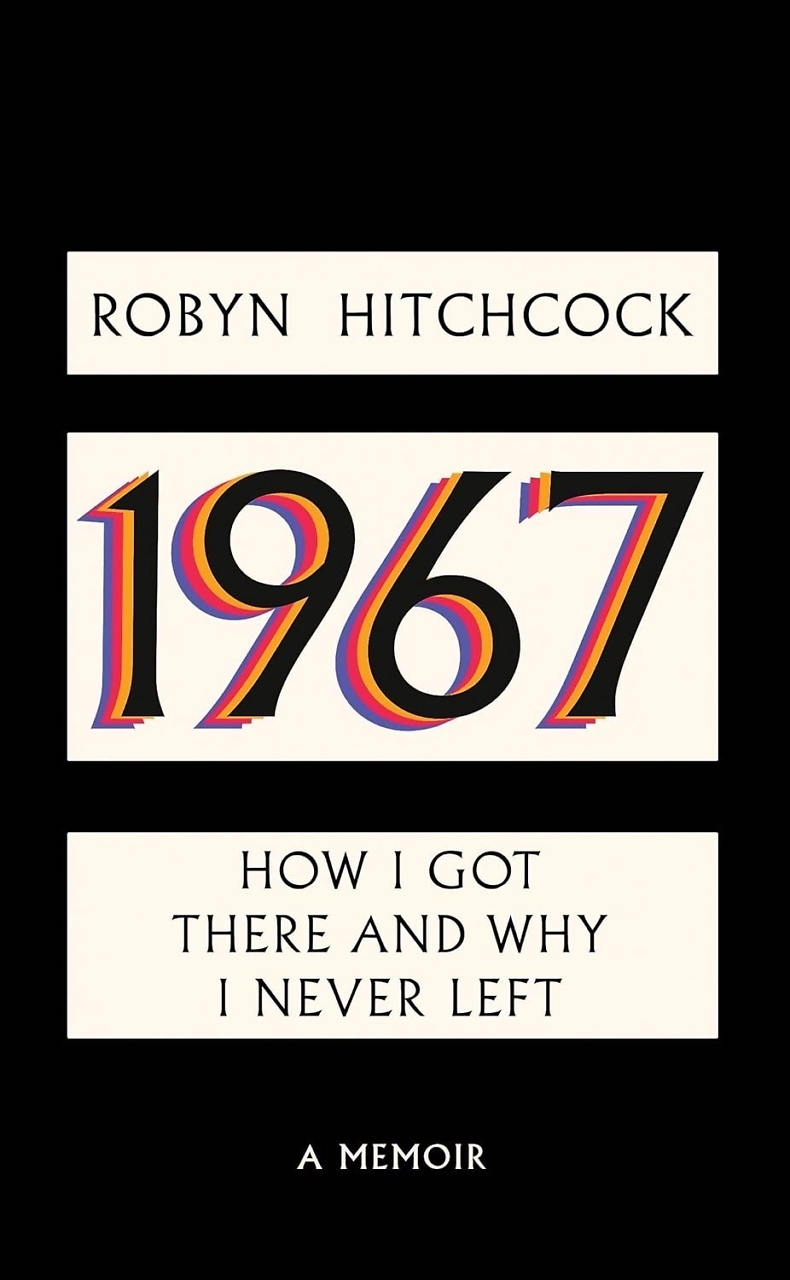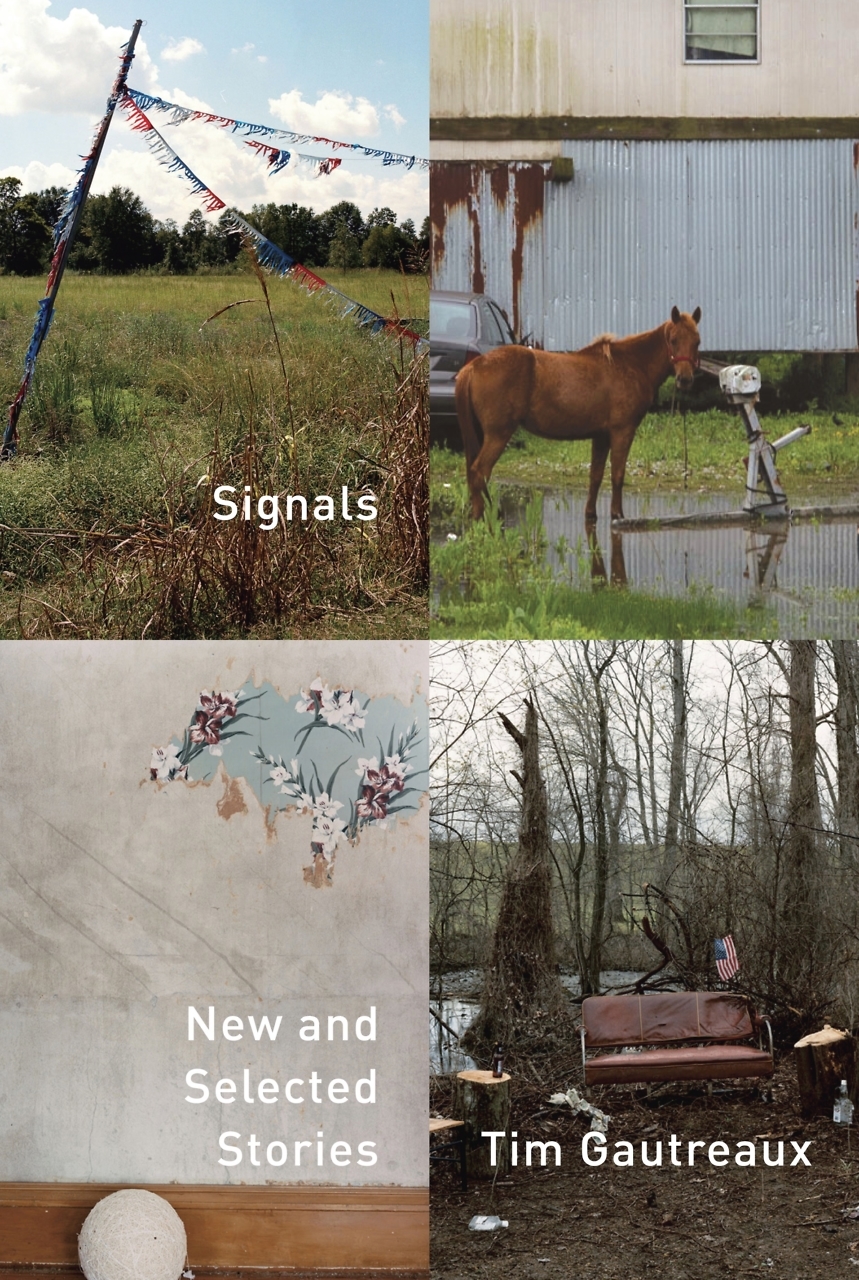Escaping the Tiger
Jid Lee remembers her harsh Korean childhood
Jid Lee’s To Kill a Tiger: A Memoir of Korea begins with a gruesome family myth told to six-year-old Lee by her grandmother. A beautiful, virtuous ancestor, so the story goes, was guaranteed the eternal good will of the gods toward all her descendants. There was one condition: that she let herself be eaten alive by a tiger. In the West such a tale would likely end with a last-minute reprieve or a miraculous escape from the tiger’s belly—but in the Korea of Lee’s childhood, happy endings weren’t so simple. The story concludes with the ancestor’s kin finding “one of her breasts, half-eaten, under a tall oak tree, and a hand with three fingers on the grass near the trail.” But her descendants do happily prosper, at least until a less virtuous male of the family spoils the deal, and Lee’s grandmother drives home the moral of the story: “Women in your clan have all been so brave and firm. They never hesitated to do anything for the good of the family, just like the tiger woman. They were warriors. You, my dear, are going to be a fighter, following them.”
 The grandmother who delivers this vaguely feminist charge is also the person who enforces a rigid system of male privilege within the family, calling Lee a “worthless chick” and refusing to allow her even a taste of the choice food reserved for the men and boys. Lee’s mother submits completely to the grandmother’s regime, and both women turn a blind eye to the beatings and abuse Lee receives from her father and the siblings she calls Big Brother and Less Big Brother. (Lee never refers to members of her immediate family by name.) Even at age six, Lee could see her dilemma. How could she cultivate a warrior spirit in herself and yet be the meek, self-abnegating woman her family and culture demanded? “I felt I was in a tiger’s stomach,” she writes. “I wanted to get out.”
The grandmother who delivers this vaguely feminist charge is also the person who enforces a rigid system of male privilege within the family, calling Lee a “worthless chick” and refusing to allow her even a taste of the choice food reserved for the men and boys. Lee’s mother submits completely to the grandmother’s regime, and both women turn a blind eye to the beatings and abuse Lee receives from her father and the siblings she calls Big Brother and Less Big Brother. (Lee never refers to members of her immediate family by name.) Even at age six, Lee could see her dilemma. How could she cultivate a warrior spirit in herself and yet be the meek, self-abnegating woman her family and culture demanded? “I felt I was in a tiger’s stomach,” she writes. “I wanted to get out.”
To Kill a Tiger is the story of how Lee did get out, eventually emigrating to the United States and becoming a professor of English at Middle Tennessee State University in Murfreesboro. Beyond this narrative of liberation, it’s the account of a young woman’s attempt to resolve her feelings about a family that is loving and in many ways supportive of her dreams but also repressive, demeaning, and violent. Lee was born in South Korea in 1955, and as the subtitle suggests, her book is also a remembrance of that country in the decades after the post-WWII bifurcation, when memories of the North-South conflict between 1950 and 1953, as well as the Japanese occupation from 1910 to 1945, were still fresh in the minds of Koreans.
Even at age six, Lee could see her dilemma. How could she cultivate a warrior spirit in herself and yet be the meek, self-abnegating woman her family and culture demanded? “I felt I was in a tiger’s stomach,” she writes. “I wanted to get out.”
Until 1969, when the family moved to Seoul, Lee lived in what she describes as one of the “safest, coziest areas” of Taegu, the third-largest city in the South, and her father was an educated man who had attended George Peabody College in Nashville. In spite of that outward respectability, the family was in fairly desperate straits. Thanks to his history as a political activist and his refusal to collaborate with the authoritarian government of Park Chung Hee, Lee’s father earned little money and lived in fear of arrest. Those stresses, combined with the lingering shame of a family scandal, created a hellish tension in the home that afflicted everyone but fell particularly hard on the women. Lee, unlike her two docile sisters, struggled against the unfairness of traditional Korean patriarchy and was literally beaten down for her protests. She recounts two fairly brutal thrashings from her outraged father, in addition to constant assaults from her brothers and disciplinary slaps from her mother.
Things weren’t much better outside her home. The Lee family was a microcosm of the larger South Korean society, which had not yet become the prosperous, industrialized country of Hyundai and Samsung. Lee recalls herself at age seven, wandering the hardscrabble streets of Taegu, where thieves preyed on new arrivals from the countryside, and “loose” women dumped unwanted babies to die. In one of the book’s most haunting passages, she calmly eats cookies while watching a gang of boys stone an abandoned infant: “I didn’t even know that I was horrified. I just observed, munching the crumbs, hearing the boys’ whoops and yells and the metallic drone of the cars on the bridge, wincing occasionally at the baby’s piercing cries.”
 The backdrop to Lee’s troubled childhood is Korea’s turbulent political history, which she describes in some depth—partly in order to explain her father’s predicament and partly to present an alternative to the standard pro-American version of the country’s history. Lee sees the U.S. as a bad actor in the Korean conflict, quashing a genuine democratic reform movement in the South and installing the rabidly anti-communist dictatorship that imprisoned and tortured her father. She devotes a chapter to the sickening American massacre of Korean civilians at No Gun Ri and she litters the book with examples of run-of-the-mill injuries to Korean culture by the people her father called “Yankee bastards.”
The backdrop to Lee’s troubled childhood is Korea’s turbulent political history, which she describes in some depth—partly in order to explain her father’s predicament and partly to present an alternative to the standard pro-American version of the country’s history. Lee sees the U.S. as a bad actor in the Korean conflict, quashing a genuine democratic reform movement in the South and installing the rabidly anti-communist dictatorship that imprisoned and tortured her father. She devotes a chapter to the sickening American massacre of Korean civilians at No Gun Ri and she litters the book with examples of run-of-the-mill injuries to Korean culture by the people her father called “Yankee bastards.”
Lee, of course, wound up making her home in the land of the Yankee bastards, a place where she could pursue the ambitions denied her in Korea. In the final chapter of the book, she writes of a dream in which she comes to realize that her image of America was an impossible ideal, “a place where everything was perfect and nothing could survive.” Making peace with the reality of America’s possibilities, she also acknowledges its flaws.
This reconciliation is mirrored in her relationship with her family and the culture that shaped it. During her years in America, Lee comes to see the many ways her family showed love for her, in spite of their harshness. She comes to appreciate her father’s unyielding sense of principle, seeing that his example gave her the strength to challenge her traditional role. Speaking of her younger sister, who is a prominent Korean journalist, Lee says, “Two—not just one—very strong-minded feminists were born and raised in one relentlessly patriarchal family, and this ironic outcome proves to me what a great family it was.” She has resolved the dilemma presented in her grandmother’s story and defeated the tiger with courage, perseverance, and insight. It seems like a very Korean happy ending.


